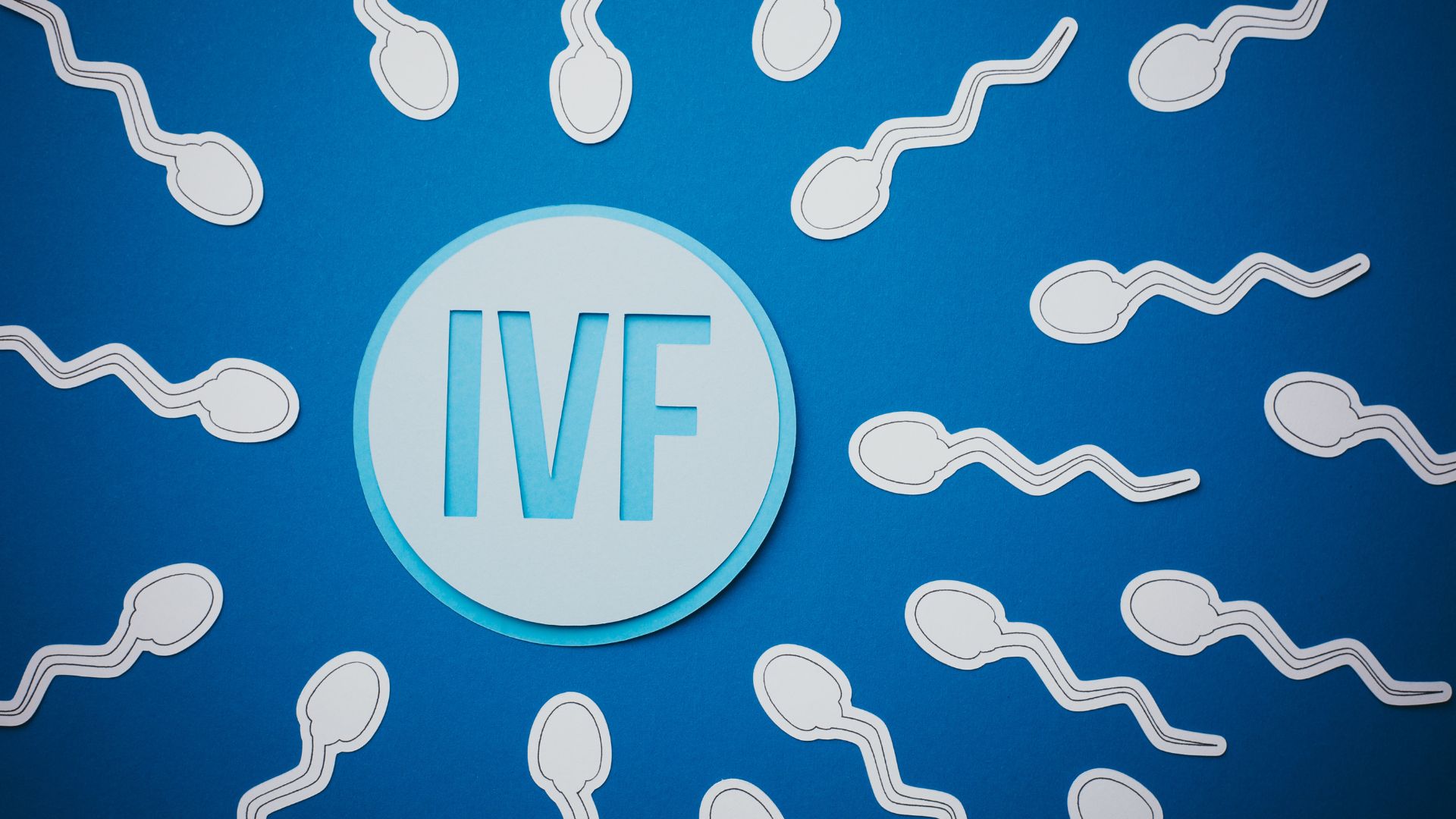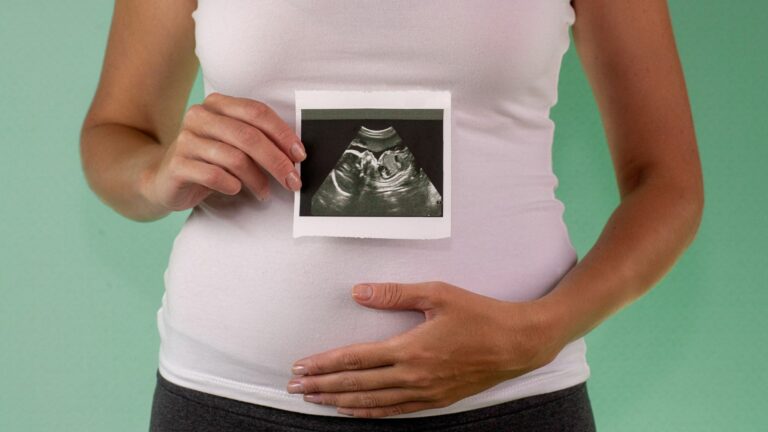
Embarking on a path to parenthood can sometimes lead you to unexpected directions. When it comes to dreams of raising a family, science has offered extraordinary options beyond the traditional means, introducing chances to those who might have once thought it impossible.
One such powerful assisted reproductive technology is IVF or In-Vitro Fertilization, the process by which an egg is fertilized by sperm outside the body.
This transformative technology can mold itself to specific needs, one of which is IVF with donor eggs—an option that opens doors for those unable to conceive with their own.
While it may not be a journey you envisioned, it is a wonderful testament to the lengths science and love can go to in creating families. As we delve into this process, let us remind ourselves that it’s the warmth of the heart that truly creates a family.
Understanding IVF with Donor Eggs
In simpler terms, IVF with donor eggs includes the almost magical process of IVF, but the eggs used for fertilization come from a generous donor rather than the intended mother.
You may be wondering what exactly happens during the IVF procedure or why and when to do IVF. In essence, it offers women who are unable to use their own eggs for various reasons, an opportunity to experience pregnancy and the joys of childbirth.
While there are emotional aspects involved in choosing this method, it essentially broadens the horizons of parenthood, coloring your life with the shades of love that a child brings. Let’s explore some of the reasons that might lead future parents down this path.
Reasons for Choosing IVF with Donor Eggs
When considering the path to parenthood, diverse circumstances and challenges can lead many to consider the option of IVF with donor eggs.
- Premature Ovarian Failure: Sometimes, a woman’s ovaries cease to function properly before the typical age of menopause, limiting her ability to produce viable eggs. It’s a heart-wrenching condition but IVF with donor eggs provides a beacon of hope where there was none.
- Diminished Ovarian Reserve: Age is a natural factor that diminishes the quantity and quality of a woman’s eggs. As the biological clock ticks on, this reserve lowers, affecting fertility. Donor eggs offer an alternative, giving older women a stronger chance at conception.
- Genetic Concerns: If there’s a risk of heritable genetic disorders from either parent, using donor eggs can decrease or eliminate the risk of passing on certain conditions, embracing the dream of a healthy baby.
- Options for Diverse Family Structures: Single individuals and same-sex couples who dream of having a child can also find solace in donor eggs, combined, if necessary, with donor sperm, to help piece together the family they’ve been longing for.
The Journey: An Overview of the Process
The journey to parenthood via IVF with donor eggs is a multi-faceted process, each piece as critical as the next. Here is a roadmap of the process:
- Finding an Egg Donor: Your voyage begins with finding a generous soul who donates her eggs. Some turn to an egg donor agency, which meticulously screen donors to find the right match. Others may opt for a known donor—a friend or relative willing to give this precious gift. Both routes require thoughtful consideration and often, legal and emotional counseling.
- Recipient Preparation: Preparing your body to receive an embryo is like preparing the soil for a seed. This involves hormone therapies to sync your cycle with that of the donor’s, thus preparing your womb for the eventual transfer. Alongside hormonal treatments, undergoing an assessment of the uterine health is imperative to ensure it’s receptive to new life.
- Egg Retrieval and Fertilization: After selecting your donor, the actual medical procedures begin. The donor undergoes a mild surgical process, and her eggs are retrieved. What follows is a moment that blends science and miracle—these eggs are then fertilized, most often using the partner’s sperm, though donor sperm can also fill this role.
- Embryo Transfer: Then comes the crucial act of transferring the embryo into your womb. This procedure is done with precision and delicacy, aiming for the moment when conditions are prime for the embryo to nestle in and grow.
- Post-Transfer and Pregnancy: Following the transfer, comes a period of wait—a quiet before the possible storm of joy—as you anticipate the results of the pregnancy test. Some may notice signs of early pregnancy, but the conclusive moment is the positive line on the test.
Every step in this procedure not only holds potential but also requires a detailed understanding for those involved. Clinics and agencies ensure that IVF costs in India are transparent and that the patient receives comprehensive support throughout the full scope of the IVF process.
The Reality Check: Success Rates
Understanding the success rates of IVF with donor eggs can help set realistic expectations for prospective parents. These rates vary, often surpassing those of traditional IVF, especially for women over the age of 35. Key determinants include:
- Donor Age: Younger donors typically provide higher quality eggs, which may lead to a greater chance of a successful pregnancy.
- Clinic’s Track Record: The success rate of a fertility clinic is an important consideration. Take the time to research and choose a clinic with a history of favorable outcomes.
- Embryo Health: The overall development and quality of the embryos are pivotal to the process, and more developed embryos may lead to higher chances of implantation.
Navigating Emotions: Dealing with the Emotional Aspects
While the physical process is well-charted, the emotional voyage of using donor eggs is deeply personal and varied. It can be a whirlwind of feelings:
- Grief and Loss: There might be a period of mourning for the genetic link that won’t exist between the mother and her child through traditional means.
- Hope and Excitement: The possibility of carrying a pregnancy and welcoming a child can also be a profound source of joy and expectation.
- Concerns over Disclosure: Deciding if, when, or how to tell the child about their origins can be tough to navigate. Many experts suggest considering an open and honest approach, keeping the child’s welfare at the forefront.
It’s important to remember that support is available. Mental health professionals, specifically those who specialize in fertility counseling, can offer invaluable assistance. Connecting with others through support groups and discussions can also provide solace and understanding on this unique path.
Balancing emotional health with each medical step is critically important for a successful journey through IVF with donor eggs.
Investing in the Dream: Cost and Financing Options
One of the most practical concerns about IVF with donor eggs is the cost. On your journey, you’re not just investing hopes and dreams, but also a substantial amount of resources. Detailed below are some of the expenses you may encounter:
- Donor Compensation and Fees: This encompasses payment to the egg donor, fees for the egg donor agency, and any legal expenses incurred during the process.
- IVF Procedure Costs: The costs for the medical procedure, including but not limited to clinic fees, embryology services, the egg retrieval process, embryo transfer, and necessary medications for both the donor and the recipient.
- Insurance and Financing: While some insurance policies may cover certain aspects of fertility treatments, coverage for donor egg IVF varies.
It is essential to understand your insurance plan’s comprehensiveness. There are also financing options and budget-friendly approaches available which can help manage the expenses.
Transparency with costs is vital, and you should feel empowered by understanding each financial aspect of your IVF journey.
Assuaging Fears: Frequently Asked Questions
As we walk through the woods of uncertainty, having questions is only natural. Let’s address some of the most common inquiries with clarity and compassion:
- Is the baby genetically related to the father?
Yes, if the sperm of the intended father is used, the baby will share a genetic connection with him. Methods like preimplantation genetic screening can ensure genetic viability and compatibility.
- How do I decide if and when to tell my child about their conception?
This deeply personal choice is yours to make. However, experts often encourage openness in an age-appropriate manner, which can help build a foundation of trust and understanding within the family.
- What are the risks associated with IVF with donor eggs?
The risks are akin to regular IVF, including medication reactions and the possibility of multiple pregnancies. Comprehensive donor screening is performed to mitigate health risks.
- What if the cycle fails?
Coping with IVF failure is difficult, but it’s important to understand that it does not signify the end of your journey. There are options to consider, and many turn to repeat cycles or explore different paths to parenthood.
Being Your Guide: Support and Resources in India
The journey through IVF with donor eggs in India doesn’t have to be a solitary one. There’s a vibrant tapestry of support and resources available to assist you:
- Reputable Egg Donor Agencies: It is essential to find an agency that aligns with your values and that conducts a rigorous screening process. India has several reputable agencies that can help you find the right donor.
- Support Groups and Online Communities: Sharing experiences and receiving support from those who have walked a similar path can be incredibly comforting. Look for online forums and support groups dedicated to fertility challenges.
- Legal and Financial Guidance: Understanding legalities, such as custody and donor rights, and navigating through the financial aspects of IVF can be complex. Professional guidance in these areas can be sought to alleviate concerns.
- Medical and Mental Health Professionals: Clinics and hospitals across India often have counselors and medical professionals that specialize in fertility and mental health to support you through your IVF journey. These professionals can provide invaluable advice on how to increase IVF success chances.
Speaking to others through men’s and women’s voices in IVF, and seeking workplace support during IVF, can broaden your support system and provide diverse perspectives and coping strategies.
Remember, you’re building more than just a family; you’re building a story of love, perseverance, and sometimes, a little science. Whether it’s through the smiles of supportive loved ones or the guidance of seasoned professionals, this journey is yours to take, with a community ready to embrace and support you every step of the way.
Our comprehensive and empathetic guide to IVF with donor eggs weaves through the many facets of this incredible journey, hopefully providing you with knowledge, consolation, and the assurance that as you embark on this path, you are never alone.
If you ever need further information or a compassionate ear, the doors of [Fertility & Reproductive Health Institute] are always open. Here’s to taking this profound step towards the family you’ve always dreamed of—and here’s to all the joy and fulfillment that lies ahead.






